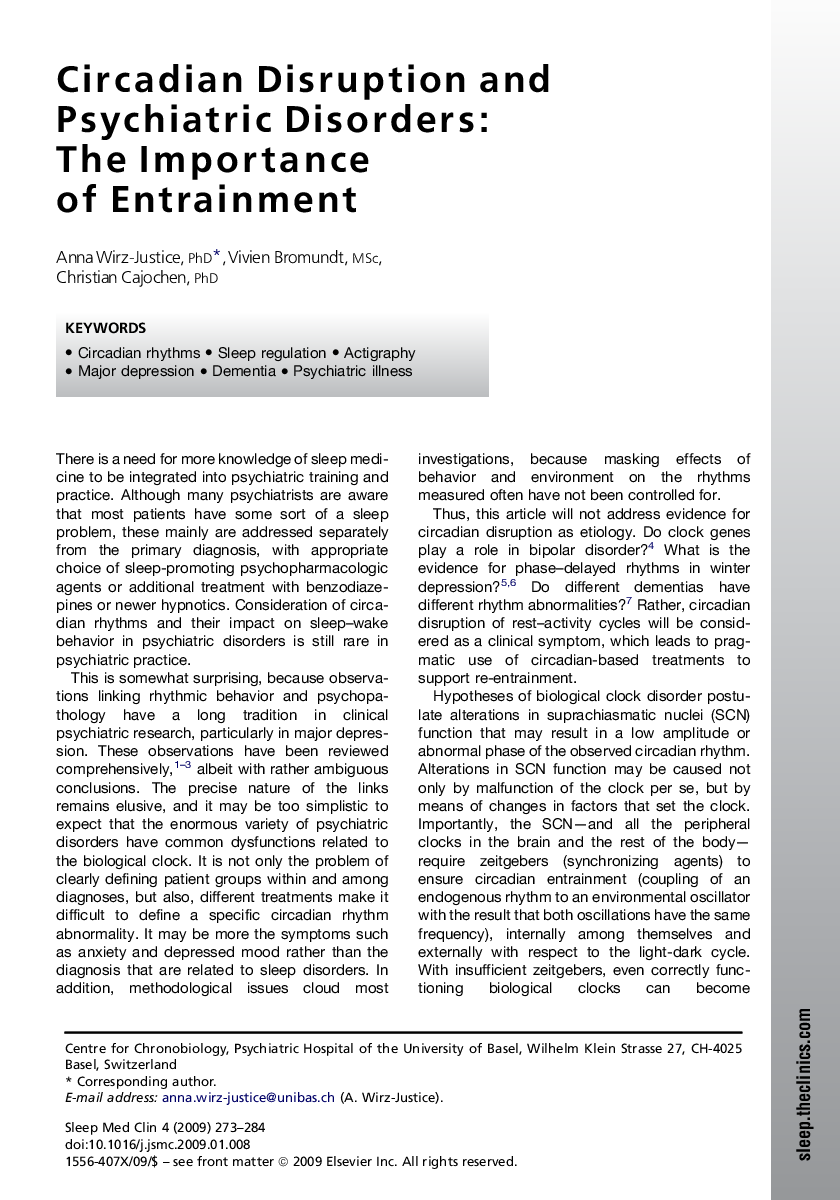| Article ID | Journal | Published Year | Pages | File Type |
|---|---|---|---|---|
| 3837649 | Sleep Medicine Clinics | 2009 | 12 Pages |
Strong evidence for an involvement of the circadian clock in psychiatric disorders has emerged. Indeed, some of the major hallmarks of diseases such as major depressive disorder, bipolar disorder, Alzheimer's disease, and schizophrenia are abnormal sleep–wake, appetite, and social rhythms. In addition, many of the successful treatments in psychiatry affect circadian rhythms, and it appears that the phase shifts, resetting and stabilization of rhythms produced by these treatments are important for therapeutic efficacy. Psychiatric disorders account for more than 25% of inpatient hospital beds worldwide, and disturbed sleep–wake cycles in patients are a top-cited reason for the choice of inpatient care. Thus, the relationship between circadian disruption and psychiatric disorders is a topic of great medical relevance.
